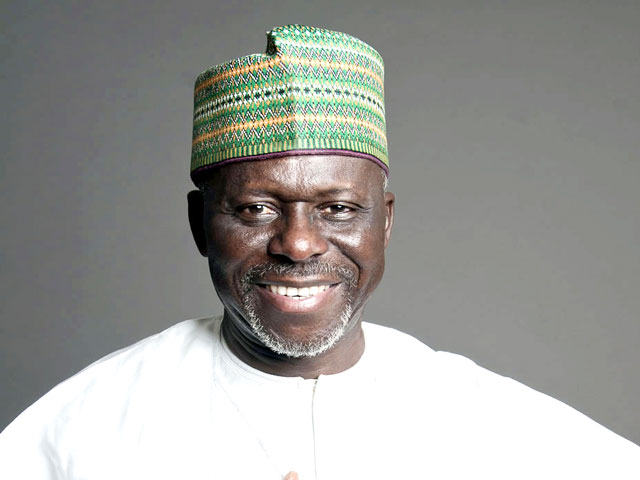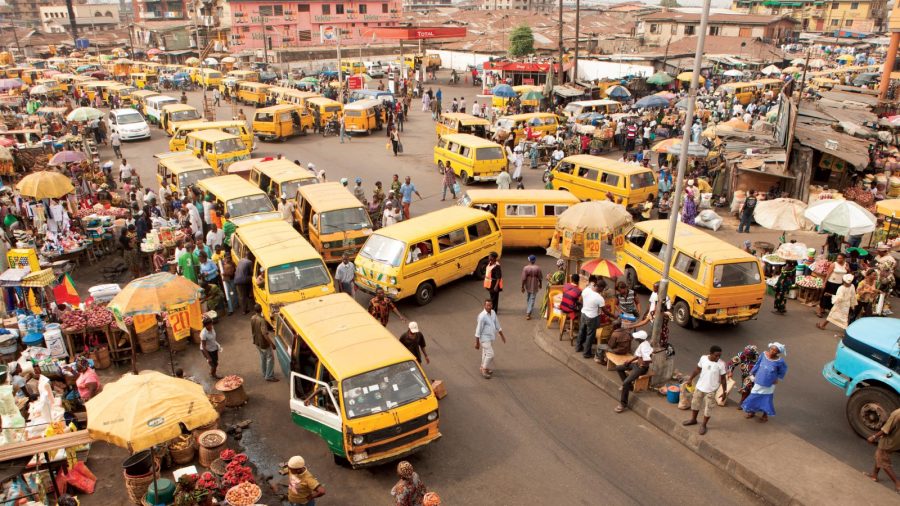So I logged onto Nigerian Twitter yesterday afternoon and found people abusing economists and financial analysts for speaking in jargons about the CBN’s actions. So for those who’re still confused about what’s going on with Nigeria’s economy and are trying to understand the implications, here’s a simplified version. No bricklayers were insulted in the writing of this post…at least, not explicitly.
So How Did This All Start?
First thing first, oil price fell. Why? Everyone’s increased their production of oil and no one plans on cutting back. In the US, shale oil’s getting cheaper, so there’s more oil out there…and we all know what happens when you have a lot more of a product — price falls. When price falls, consumers are happy and producers are unhappy. Consequently, nations that are consumers of oil have a lovely time, and oil producer countries …a not so lovely time.
So? What Does This Have to Do With the Naira?
Advertisement
Before we go on, a little info on currency and exchange markets. It’s important to note that our currency doesn’t exist in a vacuum. Essentially, a unit of our currency is exchanged for a unit of another currency. Hence the term, Foreign Exchange or Forex or FX, for short. When we buy products from outside Nigeria, we have to exchange our Naira for Dollars. Your Naira is useless outside of Nigeria. It’s why you convert your Naira to Dollars before you travel. You want to test it? Travel to Dubai with only Naira.
Back to the question you raised. Nigeria is fortunate(?) to be an oil producing nation…when oil prices are high. Presently, oil prices are not high and that’s bad for us. Nigeria’s economy is dependent on oil revenue: about 75% of Government revenue comes from our crude oil sales. So when oil prices fall, oil revenue falls too, and that’s bad for the economy.
In the currency market, exchange rates are often centered on the health of a country’s economy. When the economy of a country is strong, its currency is also strong in the foreign exchange market. When the economy appears to be weak, its currency loses value in the currency exchange rate. Nigeria’s dependent on oil, so when oil prices are weak, so our currency loses value in the foreign exchange market. This loss of value of Naira is called a ‘depreciation’ in currency value.
Advertisement
Here’s a simple example. If we began with a dollar exchange for a Naira, both are in a sense equal. However, once I have to give out 2 of my Naira for just 1 of your dollar then the value of Naira has fallen. In the past months, the exchange rate was $1 dollar to roughly N150. Thanks to depreciation and eventually devaluation (we’ll get to that later), it’s now $1 to N168.
Alright. I Get the Currency Part, But What Does Our External Reserves Have to Do with our Naira Value?
To explain this, we’ll have to look into what the External Reserves is and why it exists. Think of your External Reserves as a Savings account where you put some portion of your salary every month. That money gets saved for something later: paying your children’s university fees, buying a house, or importantly, in case things get bad in the future (perhaps you lose your job).
Likewise, countries keep these reserves, but mainly to safeguard the value of their domestic currency, boost their credit worthiness, protect against external shocks and provide a cushion for a rainy day when national revenue plummets. When Nigeria earns revenue from oil, it gets paid in dollars, so we simply stash a portion of the money in our reserves.
Advertisement
Moreover, the reserves of oil producing countries like Nigeria tend to benefit economically from higher oil prices. The higher the price of oil, the more money oil producing countries like Nigeria get to earn and save.
So if We Have an External Reserve, Why’re We Worried?
Well, having a bank account doesn’t mean you have money. We have a reserve, but our money no plenty. Nigeria has been dancing shoki with its reserves. When oil price was high, we apparently weren’t saving that much into our reserves. In fact, our reserves have been on a downward trend for years. We’ve been using our External Reserves to keep the value of Naira stable for months. When our currency appears to be falling, we take out some dollars from our external reserves and purchase Naira. Increased demand for Naira leads to increased value of Naira, and that’s how we stabilize our currency.
However, we sacrifice a portion of our External Reserves to pull this off. For instance, “while the central bank stepped in Nov. 7 to send the Naira to its biggest one-day gain in three years, intervening in the market has reduced foreign reserves to a four-month low of $37.8 billion.” In the last few months, even Russia with their large reserves had to devalue their currency by 23%.
Advertisement
So is This why Everyone Was Making Noise About CBN Devaluing the Naira?
Yes. Now there’s only so much spending from the reserves that the CBN can do, especially given that we’ve really sucked at growing our reserves when oil price was in the $100 range. It’s like when your office was paying you N100k, you were clubbing every weekend rather than saving some money. Then the minute your office decided to increase your income tax, that’s when your jobless relative comes to live with you too. So now, your salary is not only less, it’s burning faster cause there’s an extra mouth to feed.
Advertisement
The drop in oil price does not only send our currency downwards, it also makes it difficult for the CBN to defend our currency. It’s a double whammy. Essentially, if the CBN keeps trying to defend the rate at N150, it’ll burn through the reserves pretty fast and then we’ll be screwed. So relaxing this currency threshold to N168 means they can relax a bit. They don’t have to keep using as much of the reserves to prop up the Naira. If you’re still curious on how it all works, Feyi goes into the intricacies of devaluation in his fantastic post here.
Okayyy! I Think I Understand Now, But How Does This Affect Me?
Advertisement
Like many other economic events, devalution creates winners and losers. Let’s start with the losers. If you generate revenue in Naira and incur costs in dollars, this is a bad time for you. Any activity that has you converting Naira for Dollars will hurt you way more than a few months ago.
Let’s have a moment of silence for our Igbo brother who will be ‘importing containers’ this christmas. Life just got harder for them. Given that importers have to pay for their imported goods in dollars…and dollars just got more expensive, the cost of their goods have increased overnight.
Advertisement
Same thing happens to those tush parents who’ve got their kids in Nigerian schools that only accept their fees in dollars or Nigerians that have children schooling abroad. If you like flying, shopping or doing anything abroad, your cost of doing so has risen. On the contrary, if you earn in dollars and pay in Naira, life is looking pretty good at the moment.
Exporters also benefit. The fall in value of Naira means more exports because our exports have gotten cheaper. But ermm…what exactly are we exporting?
Phew. So It Doesn’t Affect Me Like That
Don’t be so sure. Nigeria’s an import-dependent nation, which means that most of what you purchase is produced abroad. I heard we import our toothpick too. If the prices of imports have risen, trust your Nigerian brothers and sisters to increase their prices too…leading to what’s popularly known as inflation.
I Was Hearing All These Oversabies Saying CRR, MPR. What Does This Mean?
CRR stands for Cash Reserve Ratio. It’s the proportion of what a bank can lend, to what it has in its coffers. So if the bank has N1000 and its ratio is 50%, can only use 50% of that money (N500) for business. Given that awon banks do not mess around with profit making, they will make sure that N500 brings back maximum profit. Banks are like the servant in Jesus’ parable that got 10 talents from his master, not the lazy one that got 1 talent. So to make max profit off the N500, they will raise interest rate if you want to borrow their money.
MPR stands for Monetary Policy Rate. The Central Bank uses the MPR to control base interest rate. The higher the rate, the less money in circulation. How? If interest rate is higher, will you borrow money from the bank knowing that you’ll pay much more later on? Nope. Instead, you’ll take your money from your pocket and give it to the bank, so they’ll make you more money.
Remember that thanks to devaluation, awon boys will be increasing prices left and right. General price increase in a given period leads to inflation. To tackle this, CBN increases CRR and MPR to reduce demand for money. This way, they prevent inflationary rise.
Okayy. I think I Understand That Part, So What’s This Austerity Thing Aunt Ngozi was Talking About?
That one is another long story. So, we’ve all been in situations when we’re broke. Ok, maybe just some of us. We adjust our lifestyle around the middle of the month when our salary hasn’t been paid. You go from eating jollof rice to drinking garri. When friends tell you to come out and party, you form ‘I’m very busy’.
Nigeria’s proposed austerity measures are similar…except on a grander scale. To cushion the effect of the falling crude oil prices, we have to cut back on spending and quite literally tighten our belts. The Government is cutting back on wastage (less government traveling and all that sort). The Government’s also raising taxes on luxury goods such as private jets, yachts and champagne. Somewhere in this luxury tax is the amusing observation that the revenue from taxes on the rich will still go back to the rich.
For the proletariat, the sweet subsidy you enjoy when you fuel your car will also get cut. Prepare to pay more for fuel. This is a good thing. Subsidy has to go anyways.
Wow. That was Long. So, Any Lesson to Learn from All This?
Yes. First lesson: Nigeria is the most reactive and least proactive nation you could’ve been born into. This isn’t the first time oil prices have fallen. Government should’ve gotten used to fluctuating oil price and prepared accordingly. And, since oil is the figurative oil in Nigeria’s economic engine, judicious and prudent management of oil revenue should’ve been practiced. However, we largely mismanaged our wealth during the time of booms and we’re now trying to behave ourselves in the time of slump. Let’s see how that goes.
The second lesson to be learnt is that we should’ve diversified our economic sources of revenue a long time ago to prevent price shock of primary products from affecting us drastically. Also, State Governments should’ve been pressured to increase their internally generated revenue much sooner. We can’t keep reacting to every economic shock that hits us.
Anyways, this is getting too long and no one probably got to the end, so no need for a witty or wise ending. But, if you reached this point, congrats! After spending all that time reading this, make sure you show off your new macroeconomic knowledge to your friends. And please, stop abusing econ-nerds. We have feelings too. Selah.
*First published by Naijanomics







